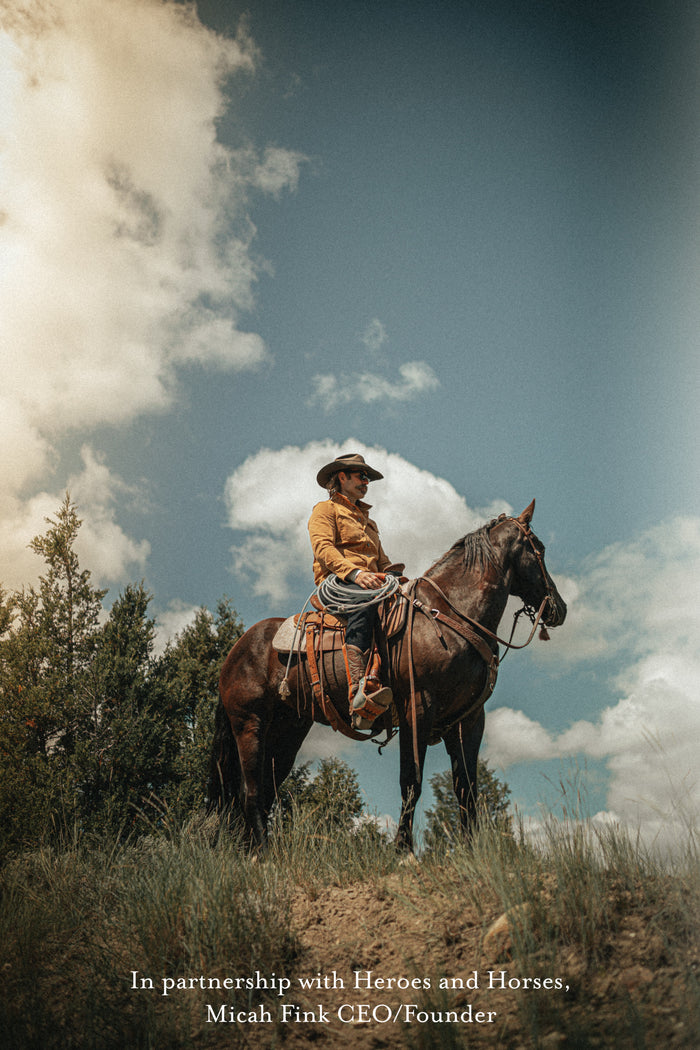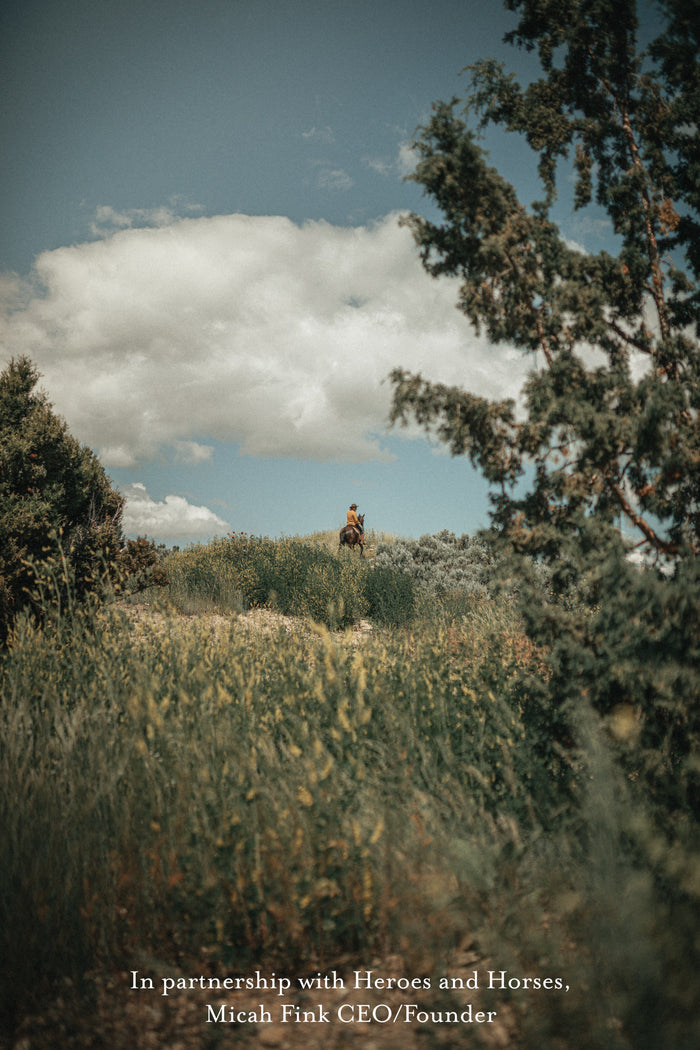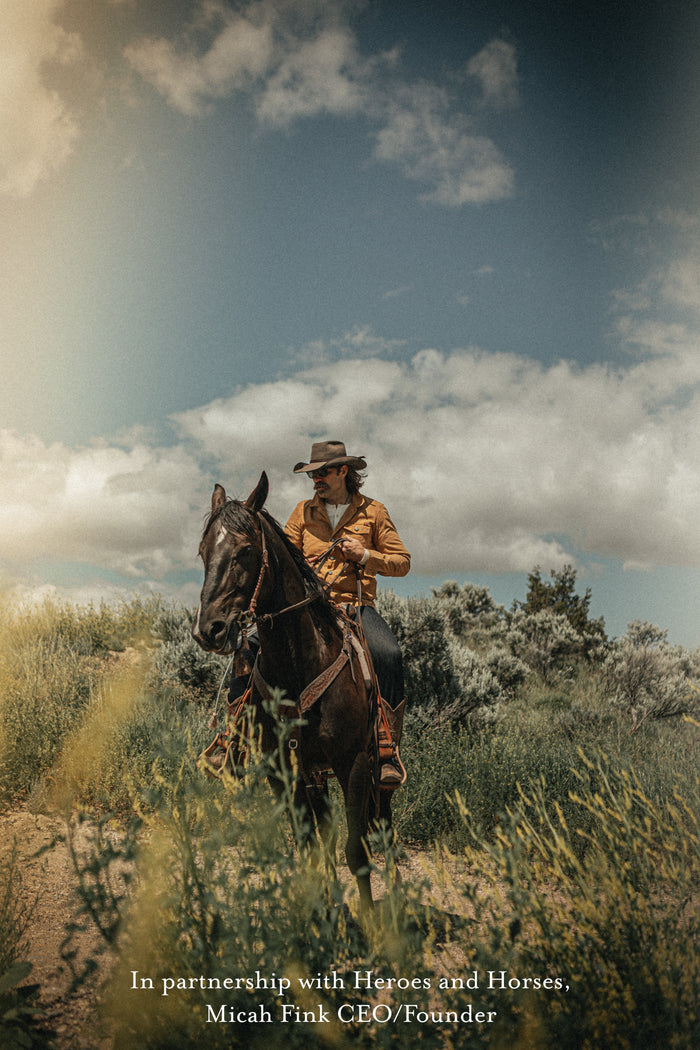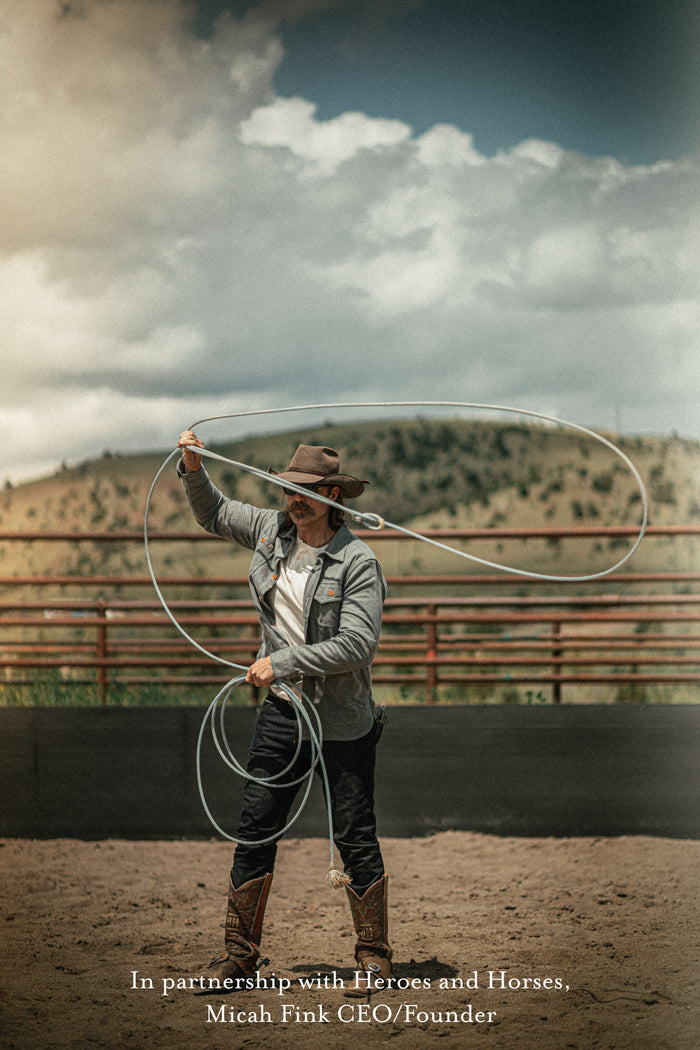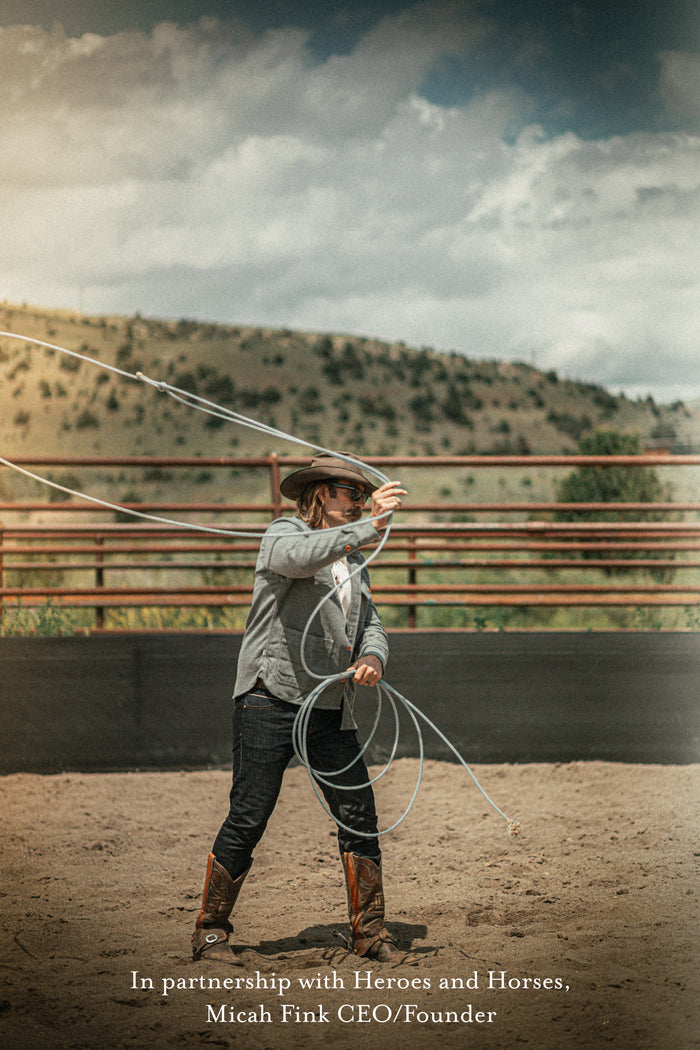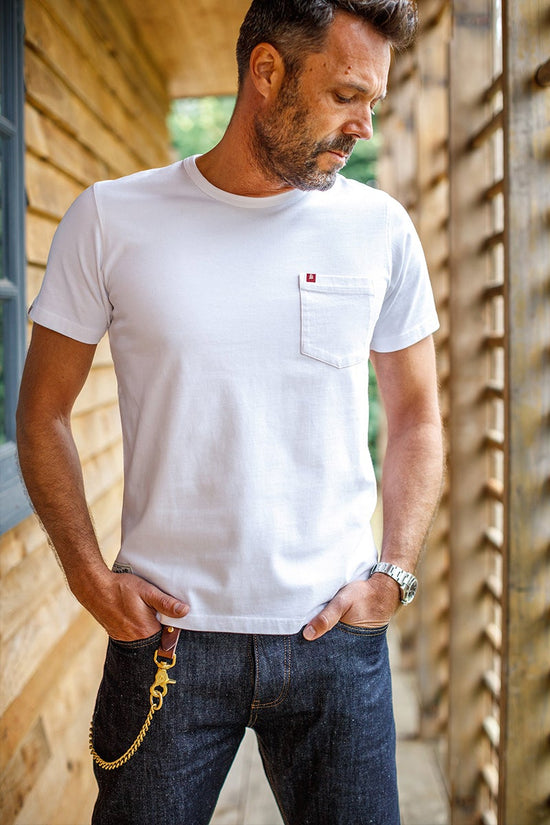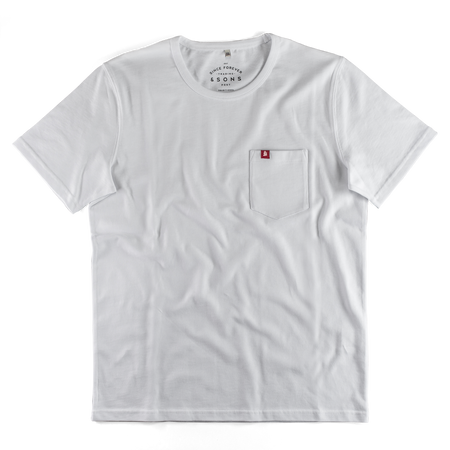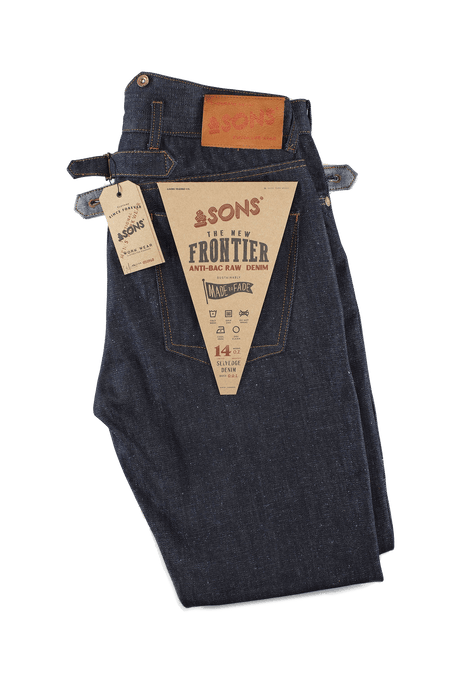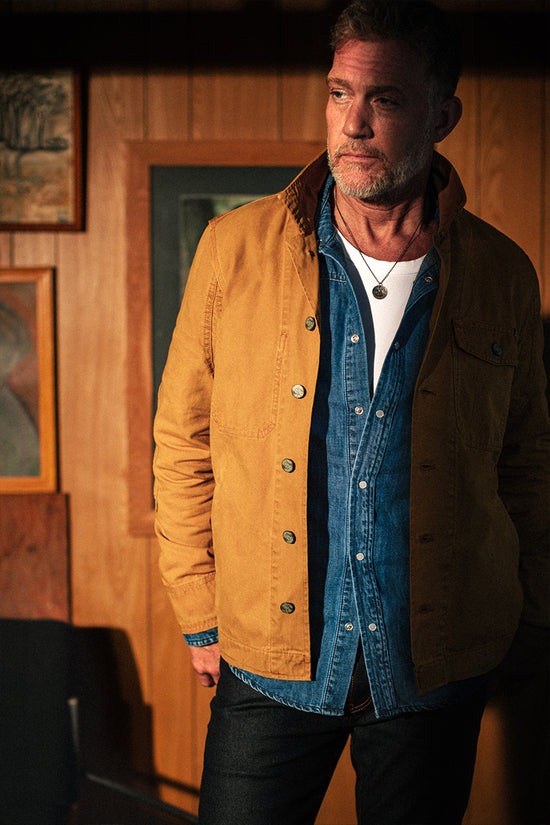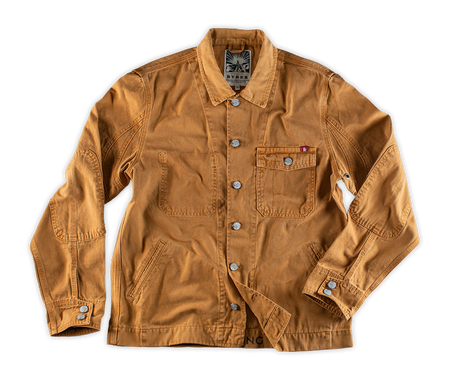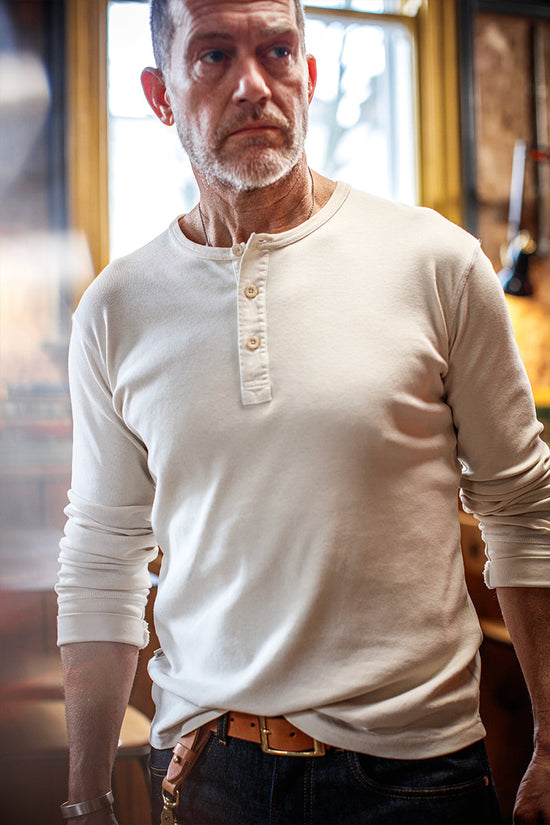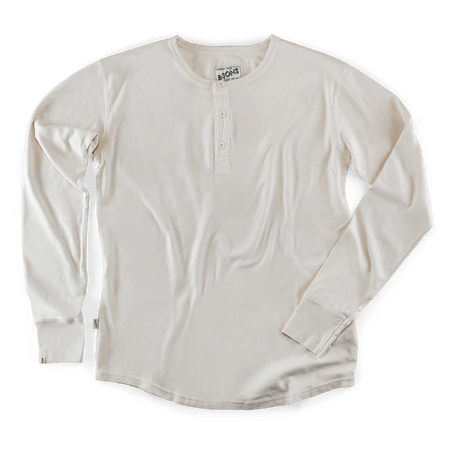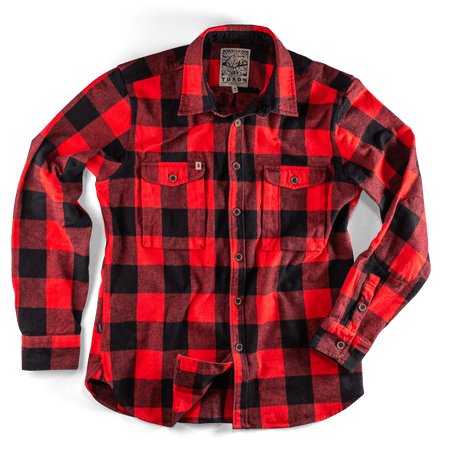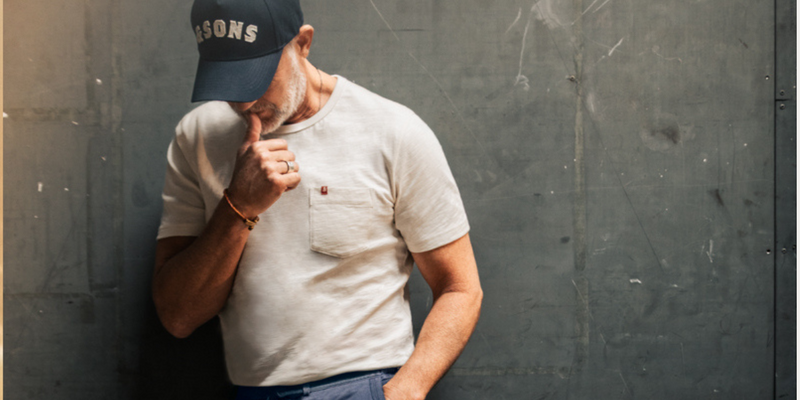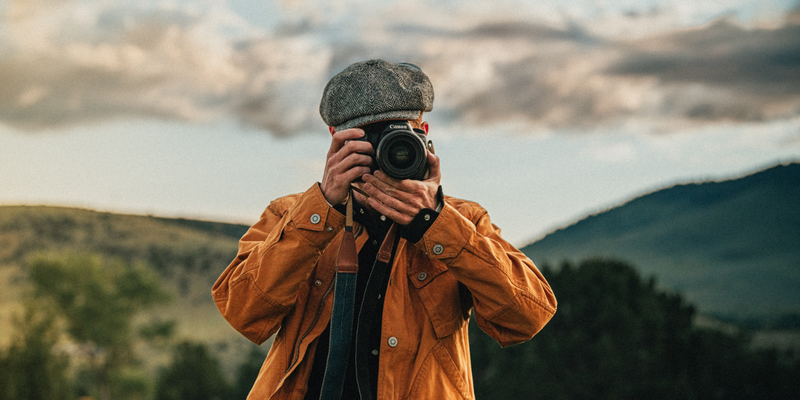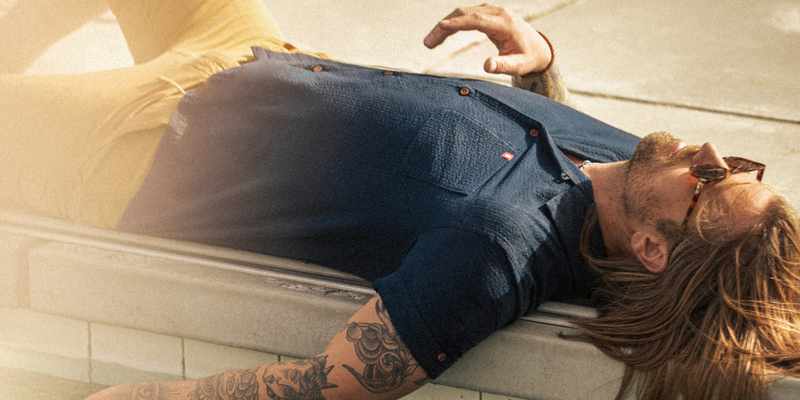July 24
Pioneer Micah Fink: CEO & Founder of Heroes & Horses
Nestled deep in the untamed wilderness of Montana lies the remote Heroes and Horses ranch, led by CEO and Founder Micah Fink, dedicated to transforming the lives of war veterans through the powerful bond between humans and horses.
A former Navy SEAL, Micah has dedicated his life to healing the invisible wounds of war veterans. In our intimate interview, Micah shared how his vision for the ranch emerged from a personal quest for healing, recognising that the journey through struggle and discomfort is what truly brings value to life. Join us as we delve into his incredible work, exploring the profound impact of this pioneering program on the lives of veterans and the lessons it offers for us all...
What inspired you to start Heroes and Horses?
I look at Heroes and Horses as really my journey of healing myself from personal wounds after a 15-year career in Special Operations. I served across the globe in 13 combat deployments and, when I came home, I saw my friends had been marginalised and turned into patients.
Sickness and mental health had become really prevalent and suicide rates were astronomical. I had to make a choice, and I believed that there had to be a different way to heal.
“Initially, I didn't believe that I was sick. I didn't believe that combat gives you disease, but it fundamentally changes you. Now I think it offers you a chance to step into a new phase of your life, allowing you to understand how those experiences can be measured and used to help you grow as a person.”
I ended up getting a job on a ranch when I moved out here to Montana. I was working the horses and the livestock. At the time, I had two close buddies that were in a really bad way. One had been shot in combat and the other one hadn't come out of his house in six months. I brought them out here and took them on the worst vacations they'd ever been on in their life. That's when I realised that it's actually the struggle that gives every single thing in life value. It's the re-engaging and processes that uncover and help us discover ourselves that would ultimately bring us home from war.
What do you hope to achieve as a charity? What do you do for these veterans when they enter the program?
I used to always think it was just about the veterans. I'm a veteran and I have a deep love for those who have served, but what I realised is, this is for the next generation. The national statistics regarding the children are staggering and most people aren’t aware of them. Vast numbers of children grow up in a homes with PTSD, no work, drug abuse, drug addiction, violence, alcoholism or suicide. It’s mind-numbing.
Ultimately it starts with the individual and it starts within their heart. It then goes from their heart, into their home and spills into their community. I hope to achieve a global movement about restoring the power of the good mind, abouttaking ownership of your life once again stopping outsourcing the most important decisions of your life to other people and begin pioneering a new way for your life.
I believe that that's where all the diverse experiences that individuals have can be quantified into wisdom. Wisdom can ultimately be shared with the next generation. I hope to inspire people to do something different, to live in a different way. And that revolution that we talk about, is a revolution of the heart.
Somebody asked me, what do you mean by revolution? And I said, “Planting a tomato is a revolution…taking ownership of growing your own food, even on a small scale.” Learning how to plant something, helping your neighbour or being involved in your community that’s all part of it.
The American veteran has a heart of service. All veterans have a heart of service across the world. They give their life, they give their college years, they give the best years of their life in service to their nation, and that's a core value that exists inside every one of them. I hope to restore that and bring that back into fruition but in a new and different way.
You've mentioned alcoholism and PTSD, what are the biggest challenges for veterans and what do they struggle with?
In North America, there are over 50,000 nonprofits that exist specifically for veterans. From 2012 to the end of 2020, we spent $92 billion. And yet, every 64 minutes, a veteran commits suicide in North America. I started realising that it's the solutions that have become the problem, that we're helping people to death.
They're not learning to stand on their own two feet or learning to realise that the opportunities that they're looking for, are in the obstacles that they're facing. We needed new solutions. We need to pioneer new ways, which, are actually the old ways.
We talked a lot with the guys during the program about how, if life wasn't difficult and there weren't challenges, there would be nothing to learn. We like to bind to this idea that complacency and comfort are the way to get us past our problems, but historically it’s quite the opposite. We learn through struggle and struggle becomes the key component that helps us uncover and discover ourselves. Then we can stand upon those hardships and they help us embrace the new ones that are to come and we evolve through them.
I think in society we've gotten to a place where the answer is a pill or the answer is a paycheck, and guys can get trapped inside of a world of not doing. In my opinion, nothing can really change unless we're willing to act. And they have to take action on their own behalf.
We took action on behalf of our nation and for our brothers and sisters in arms for all different reasons. But the really hard thing to do is to act on your own behalf, be willing to see the life that you've created by your choices and be willing to take action and change.
Can you describe the Program and the work you do with Veterans?
Heroes and Horses is a 41-day reintegration program for combat veterans. Those 41 days is one, long continual conversation with “Who am I as a person”. To get to that place, we have to remove all distractions. We live in a world of distractions and are constantly inundated with events and outside energies and forces. The news, the television, movies and media … I don't believe that we can actually hear and listen in our hearts what we need to do.
“We created a space here and over 41 days, a person can get silent and begin to listen for the first time. Not listening for words, listening for something that they feel intuitively inside of themselves. I believe that what people are looking for, they already have. I don't believe we're here to put things into people, I think we're here to awaken the wisdom that is already inside of them. “
Through that process of 41 days, we utilise the Horse Human Connection, which is a predator-prey relationship and is really profound. The horse reflects your true feelings back onto you. And you can see yourself through the horse by their reactions because they're a prey animal. They're designed to run away from things with eyes in front of their head.
The average student will ride 500-600 miles on their horses. They'll learn everything from horsemanship, the Horse Human Relationship, horse training, packing, farrier, blacksmithing, colt starting, riding and roping. They'll do obstacle courses and they'll also spend 11 days in the wilderness.
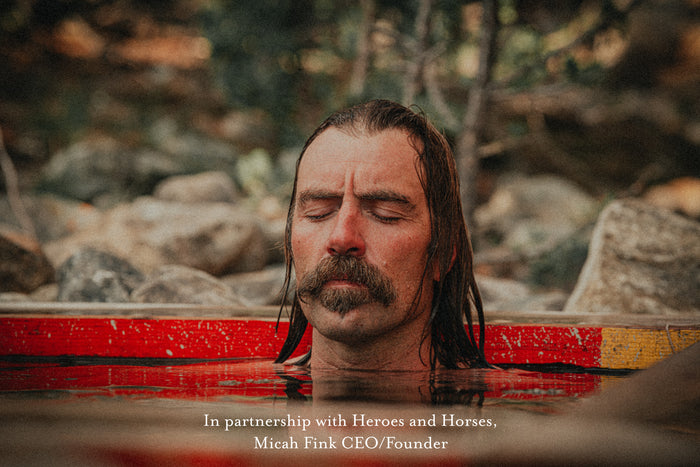
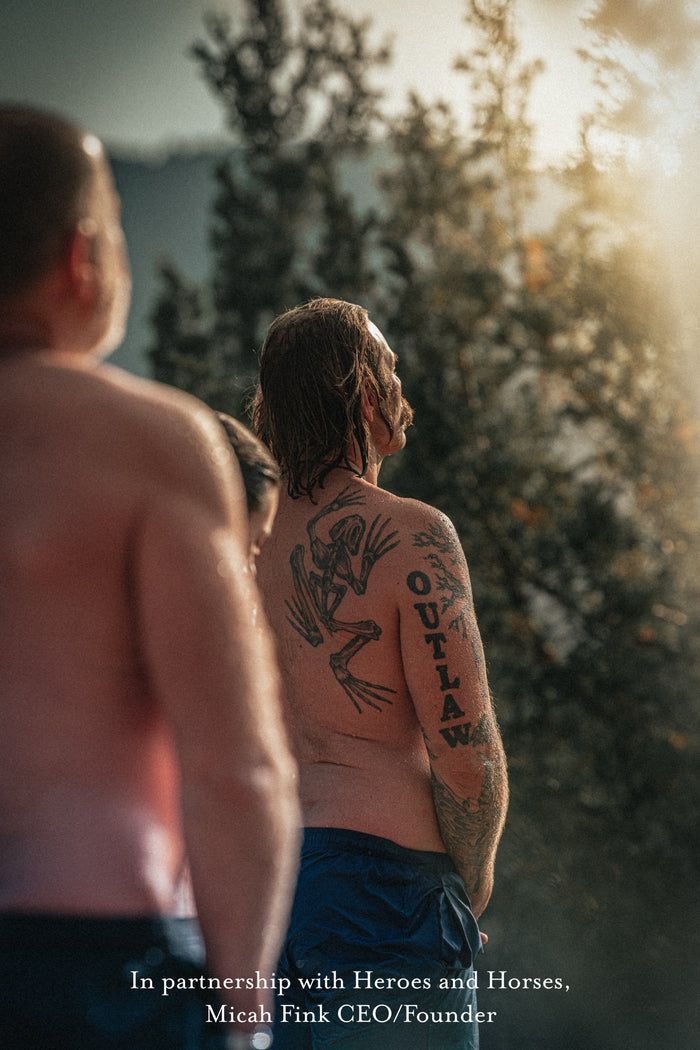
We also build tools to help them design their own program they can use when they're home to continue to connect with themselves. Here we use the elemental teachers. There's no hot showers here for 41 days. It's 41 days of cold plunge, breath work and meditation, 41 days of fitness, and 41 days of sauna. I really believe in ancient initiation rites, so we have partnered with some folks from the Cheyenne Indian Reservation, a group called the Sacred Walk Initiative. The veterans will go through two Lakota Sweat Lodge Ceremonies while they're here.
We’ve also got to treat the body as well as the mind and the spirit. We do that with our own food program. Focusing on whole-food eating where the guys learn to look at food in a different way. They don't eat for their emotions or just for pleasure or because they can get it. They learn to eat for the healing of their body, learning what's good for them. We don't have any dairy, there's no cheese, there's no honey, no sugar, no bread, no pasta. It's meat and vegetables, water and black coffee here for 41 days.
When they wake on graduation morning, they'll get up and climb a 10,000ft peak here, they'll watch and observe their last sunrise, and do a graduation sweat. They then enter what we call stay the course. This course is a year-long take-home course where they can help develop their own secret sauce that works back in the routine world.
The wilderness experience and the human-horse connection are a huge part of the program. How does it connect and change people?
I think the idea that we're going out “into nature” isn’t true, because I believe that we are nature. When you realise that nature talks to us and we're related to all the systems that are happening around us, we're just not aware of them because we live in cities and we're disconnected from living things. At the end of the day, the same processes that apply to living things in nature, still apply to us, but to gain that wisdom, you have to be alone to hear her whisper.
The time the guys spend in the wilderness is a time for them to settle in, listen, observe and see those processes and how they relate to them. For instance, I tell guys, “What the tree breathes out, I breathe in. When I breathe out, the tree breathes in.” There's an important relationship that happens there. There are times of rest, there are times of growth and there are times of death. To see those processes happening, working with the animals, it's as elemental as it can come. Every person learned something.
We do a digital detox here, so there are no cell phones for the first three weeks. It’s interesting because people just don't know what to do with themselves. People say it can feel like they’ve been here for three years and it’s only been three days.
“You can't unlearn the things that you learn here. The horses are really special animals. When you go out and gather wild horses out here in the range, you'll be a mile away and they'll feel the vibration in the ground, they'll start moving. They can't see you but they can feel it”
The first horse in North America was the Epiphysis, which was about three feet tall. It had three hooves on each foot. The horse has evolved over time. It has binocular and monocular vision, which means it sees independently almost 360 degrees. The left brain doesn't talk to the right brain. It also has the highest VO2 max out of any land animal on earth and can run almost 40 miles an hour from a standstill. That's an incredible animal. Then here comes the predator, our veteran, with two eyes in front of his head and says, "Oh, I wanna get on your back and I wanna ride" To do that successfully, you have to develop trust.
Let's say you have a really angry guy. We'll place him with a very worried horse that needs trust and he needs a gentle hand, which can be a very explosive relationship in the beginning. The individual, of course, initially curses the horse,when it's really them that are causing the reaction in the animal. But when they're willing to look at themselves and they change themselves, the relationship between the human and the horse becomes a bond where that person becomes the leader of that animal.
“You can lie to people and you can tell them anything you want about yourself, but the horse is an honest creature and he reflects your emotions back.”
What do you think makes good leadership?
I think a good leader is ‘the individual that teaches people how to lead themselves’. If you're constantly telling people what to do and what to think, you essentially wind up with employees. When you go away, they have no tools built in.
A leader has to inspire people to lead themselves and to see the importance in themselves that they're worthy of leading. So many times people become paralyzed because they're looking for someone to tell them what to do and that's difficult with military guys. They're constantly looking for someone over them to tell them where to go and what to do, what the mission is and all the details. You’ve got to find that mission in your own life. You got to learn about self-governance, self-leadership, and personal agency. I think a true leader inspires people to see the value in leading themselves. That’s where transformational change happens.
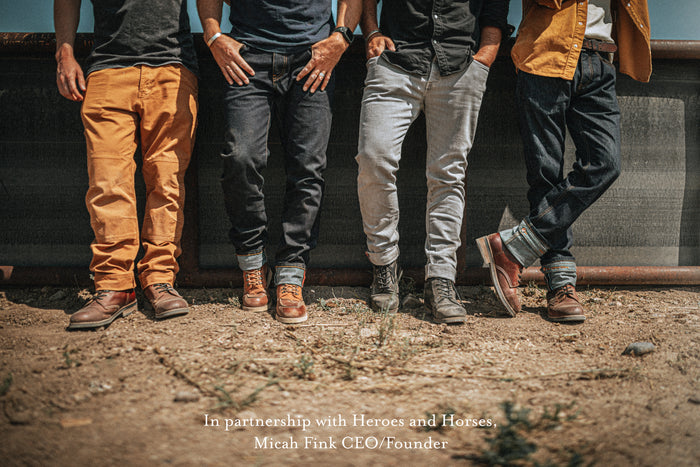
You talk about how you farm everything on the ranch and live off the land. What's your view on humanity's ambitions, and potential destruction of the natural world?
I think it's undeniable that we've wounded the planet because we don't understand the relationship that we have with her.The planet's alive, it breathes, it feels.
If you go and get a hamburger at the store, you don't really think much about it. You don't think about the animal eating grass, you don't think about the cowboys working the land, you don't think about the farmer growing the corn. You're disconnected from all those things. How could you really care and protect something that you have no relationship with? That's why I always say “The revolution is planting a tomato.” You have to understand that there is a relationship between us and the earth that we're on, and we're stewards of that earth.
I think when we don't have understanding, we don't have a relationship with those things, it's easy to abuse or create situations of abnormal use. I think that extreme individualism causes that as well, where you don't really realise that we're all drinking from the same stream. We're all sharing the same garden. Your garden may be thousands of miles away from my garden, but it's still all connected.
One of the stories we share with the guys here is about the Prado Grove, and it runs from Aspen, Colorado, all the way into Southern Utah. Hundreds and hundreds of miles of a connected organism. If I cut a tree 400 miles away, it's felt on the other end. I think the more that we can start thinking in the way of a community and start thinking about our relationship “in nature” and “as nature”, I think that we can create a revolution where people will live in a different way. We're always looking for someone to come and save us, and ultimately we're the ones that we're looking for.
I believe guys walk out of this program with a deep understanding of what that relationship is, and then they take action. I think the more of that power, of that good mind and that community-based relationship can spread across the world, I think we can make real significant changes for the next generation.
“I believe we borrow the future from the next generation and I don't think we've done a good job of that.”
With the nature of your work, what do you value in clothing? Both from a personal style aspect, but also functionality…
It'd be great if clothes were tough and also looked good. Functionality is really important out here. It's not unusual that we're all wearing the same pair of jeans for six days straight, just because I'm in the wilderness and I can only carry so many things with me. You ride hundreds of thousands of miles through brush and trees, you're working cattle, you're working the land, you're driving heavy equipment, you're fixing trucks, you need that stuff to be functional. I also think that’s part of our planetary responsibility. It’s the choice we make, for example, do I get a coffee table that's hand-hewn and solid and will be here for the next three generations? Or do I go to your local big box store and I put a cup of coffee on there, in six months it breaks, goes in the dump and then I get another one?
I think building things to last, building things that are functional, building things that have meaning, that's the kind of stuff I like. And so I love the rugged nature and quality of &SONS. I like that it's tough and it's durable and it takes a beating.A lot of stuff that you think would take a beating, just fall apart after a few wears. That requires more purchasing, more things, more stuff. I'd rather buy something once and have it last for a long time and maintain its rugged good looks, rather than buy 15 things and have them wind up floating in the ocean.
And finally, what is your definition of a Pioneer?
It’s funny you asked that question because one of our core values as an organization is Pioneering Spirit.
Pioneers are individuals who are ready to break new trails. They're ready to assume the risks, the real potential threat of annihilation, to go on an adventure and discover and uncover new places… And that, ultimately, is what Heroes and Horses is about. It's pioneering a new way in human development.
As our conversation with Micah draws to a close, we are left with a profound sense of admiration and inspiration. His own journey is a testament to the resilience of the human spirit and the transformative power of nature. Micah's pioneering approach to healing veterans through his program exemplifies a holistic and ancient wisdom, reminding us of the deep connections we share with the natural world and with each other.
As we reflect on the values of &SONS and the ethos of Heroes and Horses, it becomes clear why this partnership is so powerful. Both entities are driven by a pioneering spirit, a commitment to quality and durability, and a deep respect for the world around us.
Listening to Micah's words, we take these lessons to heart, let us all strive to lead with courage, to pioneer new paths, and to live in harmony with the world around us. Through understanding, action, and a renewed sense of purpose, we can create a brighter future for all.
